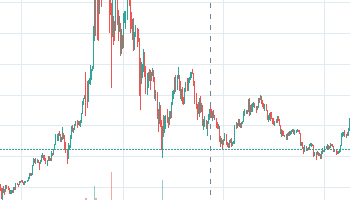Crypto exchanges have been taking the world by storm recently. Many traders have started to change their trading ways and transfer their assets with them. However, there are still more conservative traders who refused the changes and remained with their CFD brokers. All of this begs the question of what is the difference between these two providers and which one should you choose? We will try to list some of the pros and cons of both of them so you can make a decision.
CFD Brokers
Trading cryptocurrencies with these brokers is a lot more familiar for veteran traders. However, If you trade with CFD Brokers you’ll soon find out that you’re not purchasing cryptos directly, you’re just buying the contracts, hence the name CFD (Contract For Difference). Many new traders have been put off by this, thinking that their assets wouldn’t be very versatile, only appearing in a very specific field of liquidity and they’re not wrong. However, these brokers offer a lot more secure environment, judging by the fact that Crypto exchanges have been subject to some hackings recently. Trade.com is one of the many examples of CFD Brokers that offer reliable security for their assets and one of the leaders of the industry. If you check out Trade.com review on this site you’ll see that they offer a very sophisticated security system as opposed to crypto exchanges, by providing the latest 128-bit encryption technology. But it still didn’t seem enough for the enthusiasts of blockchain as their numbers keep growing despite the recent security breaches.
Even though this traditional way of trading comes with its flaws, it has accumulated some much-needed experience over the years of its operations. For example, their customer service is a lot better in terms of availability and speed. The regulations and security that we talked about are also several levels above a crypto exchange. In addition, leverages with brokers is usually a lot higher, because in some cases they’re non-existent with crypto exchanges.
Crypto Exchanges
Crypto Exchanges have been getting bigger and bigger with no signs of stopping. Their direct trading style has brought them quite a lot of popularity actually. By direct trading, we mean that when you purchase an asset, for example, 1 Bitcoin, it is yours, you can transfer it anywhere you want (like your Skrill e-Wallet). This, in turn, gives your assets multiple fields of liquidity and allows you to use it in different types of trades, in direct payments even. However, the industry has been suffering lately as mining is becoming un-maintainable and security breaches pop-up pretty much every week.
In terms of commissions, crypto exchanges are the way to go as they offer tighter spreads and commissions based on the trading volume, providing you with more profits and virtually no costs for holding on to your assets overnight. But this, unfortunately, doesn’t translate into good customer support as the amount of traffic was unexpected for these companies, making them unprepared and leaving many customer complaints and requests unanswered.
Additional Information
Trading can be a profession and it can also be just a hobby or a side hustle. There are many brokerages around the world who have different working hours. For example, you wouldn't expect some brokers to have their markets open at 1 A.M on a Saturday, therefore inhibiting your trading opportunities. Cryptos are completely new to the trading game, it is no surprise that they tried to think outside the box and opt for a 24/7 procedure.
Conclusion
Both of the providers come with their pros and cons, and honestly it depends on the style you like to trade with. If you prefer to inhibit your liquidity options for better safety, service and volume, then CFD brokers would be your best choice. But if you want a long-term cost free trading experience crypto exchanges would be able to provide it with multiple liquidity avenues. In the end, it all comes down to preference.


 Updated every 10 minutes
Updated every 10 minutes


